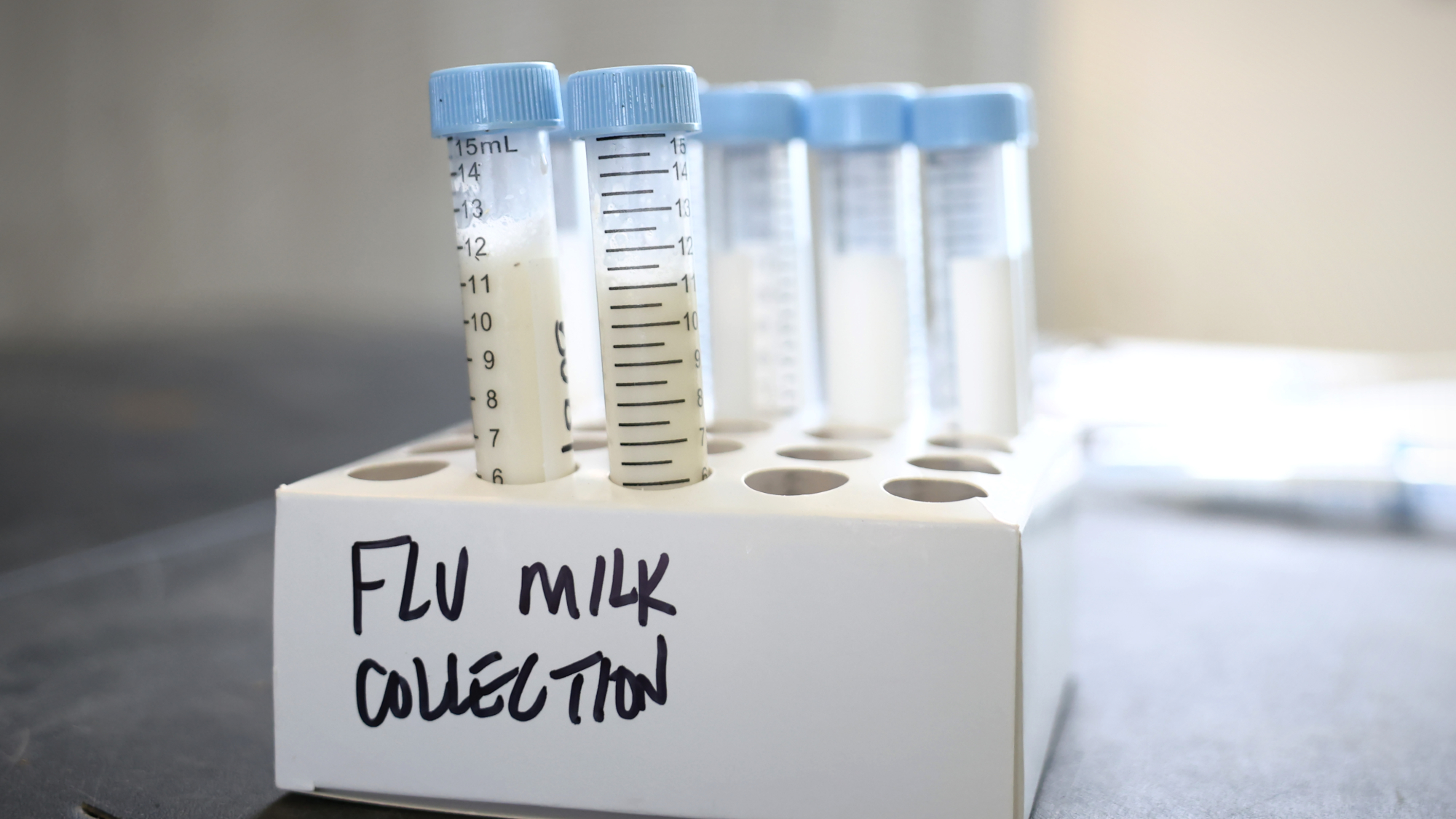New form of H5N1 bird flu found in US dairy cows
This new form of bird flu is different from the version that spread through herds over the last year


A free daily email with the biggest news stories of the day – and the best features from TheWeek.com
You are now subscribed
Your newsletter sign-up was successful
What happened
The U.S. Department of Agriculture said Wednesday that a second type of H5N1 bird flu had infected U.S. dairy herds, suggesting that cattle are more susceptible to the avian virus than previously believed and putting dairy workers at greater risk.
Who said what
The new H5N1 version, known as D1.1, was found in dairy cattle in Nevada and is different than the B3.13 type that has spread to more than 950 herds in 16 states over the past year, starting in Texas. The D1.1 infection was discovered by testing raw milk under a USDA dairy surveillance project launched last year.
"I always thought one bird-to-cow transmission was a very rare event," said Richard Webby, an influenza expert at St. Jude Children's Research Hospital, said to The New York Times. That it happened twice is "a little bit of a 'wow' to me." Most of the 67 people diagnosed with bird flu in the U.S. had mild symptoms and had worked with dairy or cattle, but the one known death was an elderly man infected with D1.1 after contact with wild and backyard birds.
The Week
Escape your echo chamber. Get the facts behind the news, plus analysis from multiple perspectives.

Sign up for The Week's Free Newsletters
From our morning news briefing to a weekly Good News Newsletter, get the best of The Week delivered directly to your inbox.
From our morning news briefing to a weekly Good News Newsletter, get the best of The Week delivered directly to your inbox.
What next?
"There does not appear to be an immediate change to human risk," already considered low for the general public, The Washington Post said. But it's important for federal officials to be vigilant and transparent about a virus that could "make Covid seem like a walk in the park," said Michael Worobey, a University of Arizona evolutionary biologist.
A free daily email with the biggest news stories of the day – and the best features from TheWeek.com
Peter has worked as a news and culture writer and editor at The Week since the site's launch in 2008. He covers politics, world affairs, religion and cultural currents. His journalism career began as a copy editor at a financial newswire and has included editorial positions at The New York Times Magazine, Facts on File, and Oregon State University.
-
 How the FCC’s ‘equal time’ rule works
How the FCC’s ‘equal time’ rule worksIn the Spotlight The law is at the heart of the Colbert-CBS conflict
-
 What is the endgame in the DHS shutdown?
What is the endgame in the DHS shutdown?Today’s Big Question Democrats want to rein in ICE’s immigration crackdown
-
 ‘Poor time management isn’t just an inconvenience’
‘Poor time management isn’t just an inconvenience’Instant Opinion Opinion, comment and editorials of the day
-
 Scientists are worried about amoebas
Scientists are worried about amoebasUnder the radar Small and very mighty
-
 A Nipah virus outbreak in India has brought back Covid-era surveillance
A Nipah virus outbreak in India has brought back Covid-era surveillanceUnder the radar The disease can spread through animals and humans
-
 Trump HHS slashes advised child vaccinations
Trump HHS slashes advised child vaccinationsSpeed Read In a widely condemned move, the CDC will now recommend that children get vaccinated against 11 communicable diseases, not 17
-
 Deaths of children under 5 have gone up for the first time this century
Deaths of children under 5 have gone up for the first time this centuryUnder the radar Poor funding is the culprit
-
 A fentanyl vaccine may be on the horizon
A fentanyl vaccine may be on the horizonUnder the radar Taking a serious jab at the opioid epidemic
-
 Health: Will Kennedy dismantle U.S. immunization policy?
Health: Will Kennedy dismantle U.S. immunization policy?Feature ‘America’s vaccine playbook is being rewritten by people who don’t believe in them’
-
 Stopping GLP-1s raises complicated questions for pregnancy
Stopping GLP-1s raises complicated questions for pregnancyThe Explainer Stopping the medication could be risky during pregnancy, but there is more to the story to be uncovered
-
 More adults are dying before the age of 65
More adults are dying before the age of 65Under the radar The phenomenon is more pronounced in Black and low-income populations
